We are proud to present five films from the “Provoked Narratives” series by the Palestine Film Institute. Please join us to see Palestine’s history on film and stand in solidarity with its people.
Thursday, January 23rd at 7:00 p.m.
Admission is FREE – Tickets are required
About the event
The event is free to attend. We encourage donations to the Ghassan Abu Sittah children’s fund (gascf.org) and Medical Aid for Palestine (map.org.uk). There will be options available at the event for those who wish to contribute.
With the ongoing violence against Gaza, the West Bank, and Lebanon, we are compelled to turn to the archive as an act of resistance. This series brings together films from 1967 to 1984 that explore shifting perspectives on the Palestinian struggle, more important than ever to learn from and understand at this time of crisis. These pioneering works by Palestinian filmmakers forge new visual languages in grief and defiance, engaging in themes of generational trauma, resistance, and solidarity.
Through these films, we aim to foster learning, spark dialogue and action, build community, and support mobilizing efforts for change in the face of ongoing genocide.
About the films — Some text and descriptions provided courtesy of the Palestine Film Institute.
Blown by the Wind (1971, dir. Jacques Madvo). Runtime: 18 mins
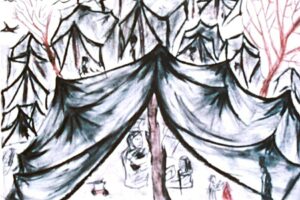
Blown by the Wind presents vibrant drawings by Palestinian children displaced to Lebanon after the 1967 Six-Day War, capturing their memories and dreams of home. Through images of lush landscapes and gentle folk songs, the Lebanon-raised Armenian filmmaker Jacques Madvo portrays the children’s longing and resilience, even as these are juxtaposed with depictions of violence and exile. This award-winning short powerfully reflects how love for nature and homeland is embedded in Palestinian art and spirit from a young age.
Kufr Shuba (1975, dir. Samir Nimr). Runtime: 35 mins
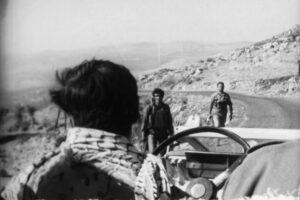
Samir Nimr’s Kufr Shuba, produced by the Palestine Cinema Institute, commemorates solidarity between Lebanese villagers and Palestinian fighters in South Lebanon following a fierce battle. Combining lyrical landscapes and political statement, the film juxtaposes Arafat’s 1974 UN address with the reflections of resistance fighters. This cinematic tribute underscores resilience, the love of land, and a commitment to solidarity as essential for liberation.
Children without Childhood (1980, dir. Khadijeh Habashneh). Runtime: 21 mins
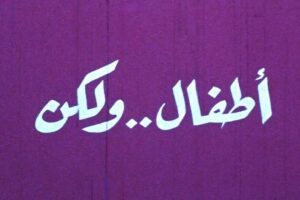
Veteran filmmaker Khadijeh Habashneh dedicates her work to preserving the Palestinian struggle, especially the lives of women and children under occupation. Children without Childhood, produced by the Palestine Cinema Institute and the General Union of Palestinian Women, centers on children orphaned by the 1976 Tel al-Zaatar massacre and their lives in diaspora camps under Israeli occupation. The film highlights the stark contrast between the International Declaration of Child Rights and the harsh realities faced by Palestinian children.
Why? (1982, dir. Monica Maurer). Runtime: 28 mins
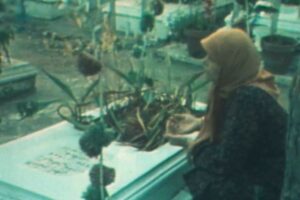
Activist filmmaker Monica Maurer moved to Beirut in 1977 to work with the PLO’s Palestine Cinema Institute and over the course of five years made six documentaries about the Palestinian resistance. Shot in Beirut and released during the Israeli invasion of Lebanon in 1982, the film both portrays the brutality of the siege as well as people’s survival. The film is rhythmed by the urgency of sirens, communicating the human toll of the violence to a wider world in an attempt to rally support for the Palestinian revolution.
Ma’loul Celebrates Its Destruction (1984, dir. Michel Khleifi). Runtime: 32 mins
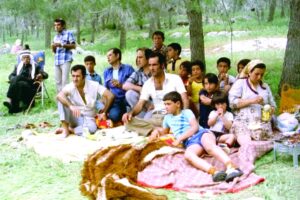
Like countless Palestinian villages since 1948, Ma’loul has been erased from the map. Every year on Israel’s Independence Day—the only day movement is permitted—Ma’loul’s displaced Palestinian families return to share stories, walk among their lemon, apricot, and almond trees, and pass their heritage on to the next generation. In Ma’loul Celebrates Its Destruction, Michel Khleifi captures this act of remembrance, crafting a powerful meditation on memory, resilience, and the refusal to be erased. The film marks a turning point in Palestinian cinema, shifting from the dream of return to the act of return itself, where storytelling and memory become tools of resistance.



